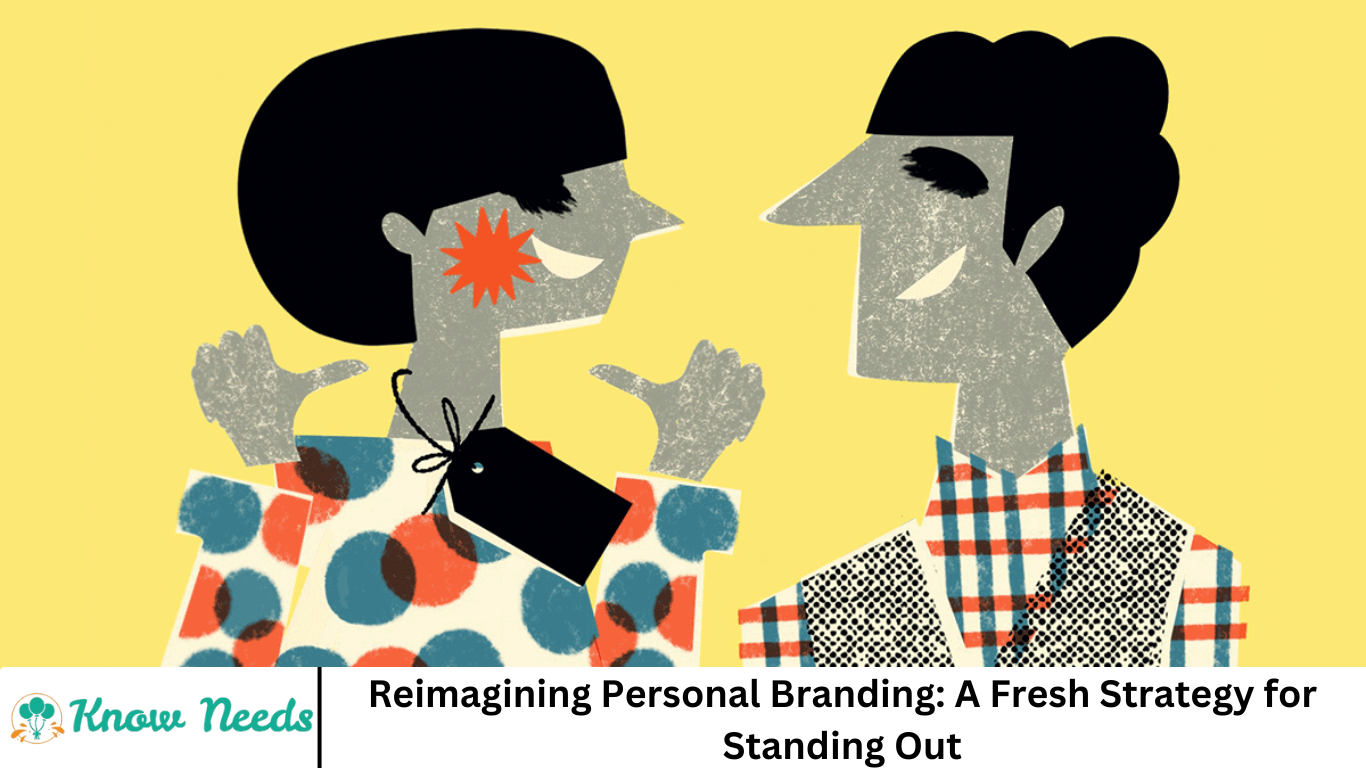In an age where visibility is currency and reputation is everything, personal branding has become more than just a buzzword—it’s a career imperative. Whether you’re a job seeker, entrepreneur, creative, or executive, your personal brand shapes how others perceive your value.
But the traditional approach to personal branding—polishing a LinkedIn profile, crafting an elevator pitch, and curating your social media—no longer cuts it.
Today’s digital landscape requires a reimagined, more authentic, and integrated branding strategy. In this article, we’ll explore what modern personal branding means, why it matters more than ever, and how to develop a compelling brand that truly helps you stand out.
More Read: Thriving in the Era of Remote Work
What Is Personal Branding?
Personal branding is the strategic practice of defining, communicating, and managing how you are perceived by others—professionally and personally. It’s not about creating a fake persona or being constantly self-promotional. Instead, it’s about aligning your authentic self with the image you want others to see and the value you provide.
Jeff Bezos famously said, “Your brand is what people say about you when you’re not in the room.” That quote captures a core truth: your personal brand is built not just by what you say about yourself, but by how others experience you, interact with you, and talk about you.
Why Reimagining Your Personal Brand Matters
In the past, personal branding was optional—something reserved for public figures, CEOs, or influencers. Today, it’s a necessity for anyone looking to succeed in a hyperconnected, hypercompetitive world. Here’s why:
1. Digital First Impressions
A quick Google search is often the first step people take before a job interview, partnership, or business deal. What they find—your LinkedIn profile, social media activity, personal website, or even old blog posts—shapes their perception instantly.
2. Professional Mobility
With remote work, the gig economy, and evolving career paths, people are switching roles and industries faster than ever. A clear personal brand helps you stay visible and relevant across different platforms and fields.
3. Authenticity and Trust
Modern audiences value authenticity. Brands—personal or corporate—that communicate clearly, consistently, and genuinely build stronger relationships and more trust.
A Fresh Strategy for Building Your Personal Brand
Reimagining personal branding means shifting from superficial polish to meaningful storytelling. It requires introspection, strategic thinking, and consistent execution. Here’s a step-by-step guide to help you build a powerful and authentic personal brand.
Step 1: Define Your Unique Value Proposition
Start by asking:
- What are you exceptionally good at?
- What problems do you solve?
- What do people consistently come to you for?
- What makes you different from others in your space?
This is your unique value proposition (UVP). It’s the foundation of your personal brand and should guide everything from your resume to your social media content.
Step 2: Clarify Your Brand Pillars
Brand pillars are the key themes or values that define your identity. These may include:
- Expertise (e.g., digital marketing, data analytics, leadership)
- Personality traits (e.g., empathetic, analytical, visionary)
- Core values (e.g., integrity, innovation, collaboration)
- Passions or causes (e.g., sustainability, DEI, education)
Choose 3–5 pillars that represent your authentic self and build your content and communication strategy around them.
Step 3: Craft a Compelling Brand Narrative
People remember stories, not resumes. Instead of simply listing your accomplishments, craft a compelling narrative that connects the dots between your experiences, motivations, challenges, and aspirations.
Your personal brand story should include:
- Where you started
- Key turning points or achievements
- What you’ve learned
- Where you’re headed and why
Make your story relatable, concise, and tailored to your audience—whether it’s potential employers, clients, or collaborators.
Step 4: Audit and Optimize Your Digital Presence
Once your brand is defined, ensure it’s reflected across all your platforms consistently:
- LinkedIn: Write a compelling headline and summary. Use keywords relevant to your industry. Regularly post content that supports your brand pillars.
- Personal Website or Portfolio: A central hub for your story, achievements, testimonials, and blog content.
- Social Media: Choose 1–2 platforms to focus on. Share insights, opinions, and experiences that reflect your brand voice.
- Search Results: Google yourself. Ensure your online presence aligns with the image you want to project.
SEO Tip: Use relevant keywords like personal branding, career growth, thought leadership, and your industry-specific terms throughout your online content to improve discoverability.
Step 5: Create and Share Valuable Content
One of the most effective ways to stand out is by demonstrating your expertise. Content creation helps establish you as a thought leader and keeps your audience engaged.
Ideas include:
- Writing LinkedIn articles or blog posts
- Sharing behind-the-scenes stories or lessons learned
- Speaking at webinars or podcasts
- Creating short videos, reels, or tutorials
Use your brand pillars to guide your content themes and maintain a consistent tone and voice.
Step 6: Engage and Expand Your Network
Personal branding isn’t just about talking—it’s about connecting. Build meaningful relationships by:
- Commenting thoughtfully on others’ content
- Joining relevant communities or industry groups
- Attending networking events (online or in person)
- Reaching out to peers or mentors for collaborations
Remember: visibility leads to opportunity.
Common Personal Branding Mistakes to Avoid
Even with the best intentions, it’s easy to fall into common traps. Watch out for:
- Inconsistency: Mixed messages across platforms dilute your brand.
- Inauthenticity: Over-polishing or mimicking others makes you forgettable.
- Neglecting your audience: Your brand is about what you offer others, not just who you are.
- Focusing only on the short term: A strong brand grows over time. Stay committed.
Frequently Asked Question
What does “reimagining personal branding” really mean?
Reimagining personal branding means moving beyond outdated, overly polished self-promotion. It emphasizes authenticity, strategic storytelling, and consistency across platforms to reflect your true value and make meaningful connections in today’s digital-first world.
Why is personal branding more important today than ever before?
With online presence influencing hiring decisions, networking, and trust-building, your personal brand shapes how others perceive your skills, values, and potential. It can open doors to jobs, partnerships, and thought leadership opportunities—even before you speak a word.
How do I identify my personal brand’s core message?
Start by reflecting on your strengths, passions, and values. Ask: What do people come to me for? What problems do I solve? What sets me apart? The intersection of these answers forms your unique value proposition—your brand’s core.
Do I need to be active on every social media platform to build my brand?
No. Focus on 1–2 platforms where your target audience is most active. LinkedIn is key for professionals; Instagram or TikTok may suit creatives. Consistency and relevance matter more than being everywhere.
What types of content should I create to support my brand?
Create content that reflects your expertise, values, and personality. This can include blog posts, LinkedIn articles, behind-the-scenes stories, short videos, case studies, or curated insights relevant to your field and brand message.
How do I measure the success of my personal branding efforts?
Track metrics like profile views, engagement (likes/comments/shares), follower growth, inbound opportunities (job offers, speaking invites), and feedback from peers. Growth in trust and visibility over time indicates success.
Can I change or evolve my personal brand over time?
Absolutely. As your career, skills, or interests evolve, your personal brand should too. The key is to make intentional, transparent updates that reflect your growth while staying true to your core values and strengths.
Conclusion
Reimagining personal branding isn’t about crafting a persona—it’s about discovering who you truly are and sharing that with the world in a strategic, meaningful way. A great personal brand is clear, authentic, and memorable. It helps you stand out, opens doors, and supports your long-term goals. By following this fresh, human-centered approach, you’ll not only enhance your visibility—you’ll also build a career and life that reflect your unique identity and values.


